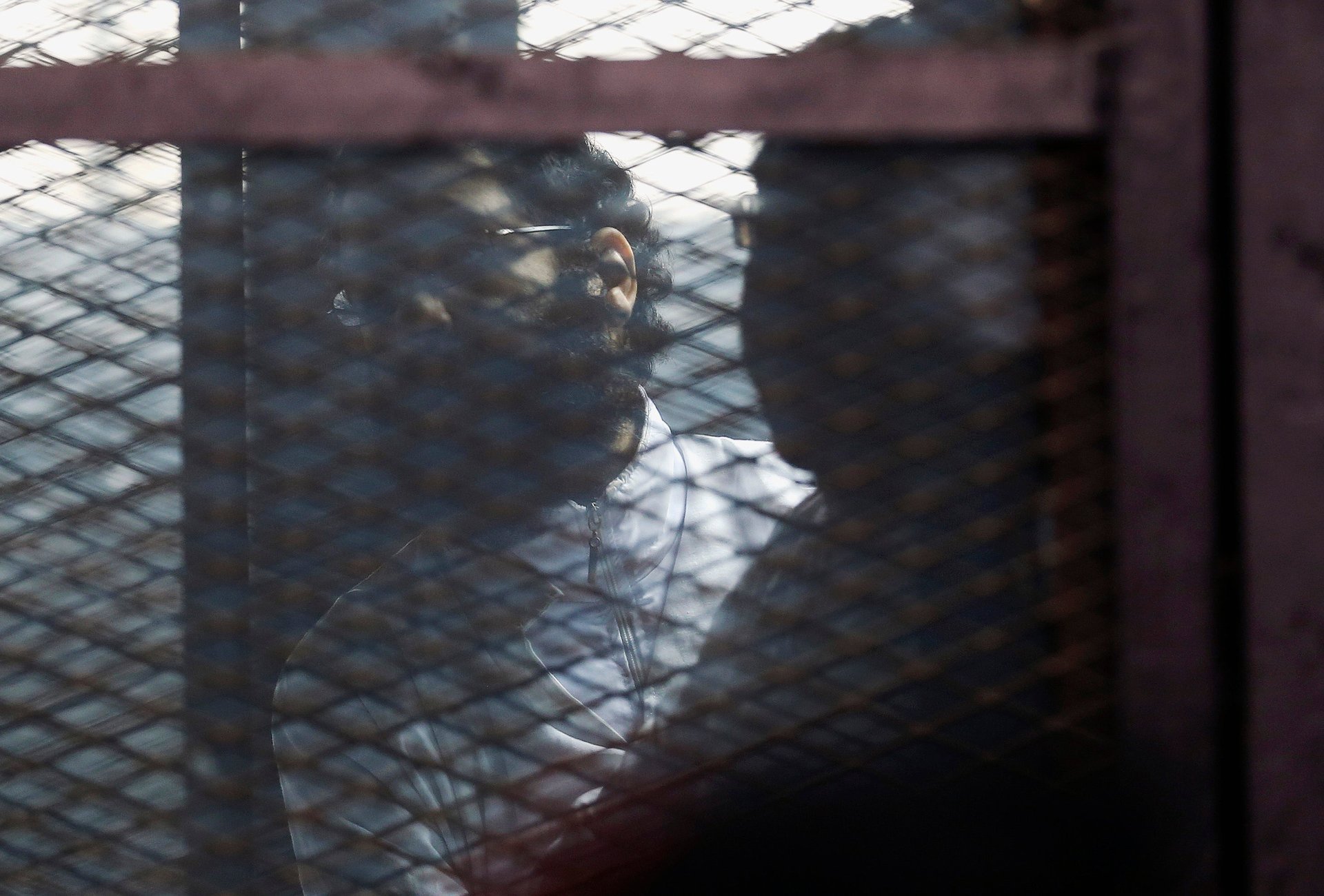Climate activists are slamming Egypt's record on human rights ahead of COP27
Hunger strikes, pretrial detentions, and repression of activists are stealing the spotlight from climate policy

Youth climate activist Greta Thunberg has a bone to pick with the organizers of the upcoming COP27 climate summit, and it’s not about greenhouse gas emissions.
On Oct. 20, Thunberg urged her Twitter followers to sign a petition condemning human rights abuses in Egypt, the host of this year’s summit. “Thousands continue to be arbitrarily detained without a legal basis, following grossly unfair trials, or solely for peacefully exercising their human rights,” the petition says, and warns that “Egypt risks compromising the success of the [COP27] summit if it does not urgently address ongoing arbitrary restrictions on civil society.”
COP summits are usually good PR for the host country, a chance to project global leadership on an issue of universal importance. They can also draw scrutiny of the host’s own climate policies. But rarely has a COP been hosted by a country with such a reputation of human rights violations as Egypt, pushing issues outside the normal purview of climate diplomacy into the foreground. Egypt has the lowest score for civil liberties of any COP host in the last 30 years on a ranking maintained by the US think tank Freedom House (although next year’s host, the United Arab Emirates, ranks even lower).
Over the last month, Amnesty International, Human Rights Watch, and an independent human rights council appointed by the UN all published new reports highlighting human rights concerns in Egypt, warning about potential repression of protests during the COP, and, in Amnesty’s case, accusing the government of using the climate summit as a form of propaganda to distract from human rights concerns.
Human rights issues in Egypt
Human rights activists have raised concerns about the state of tens of thousands of political prisoners, including high-profile cases like that of Egyptian-British dual citizen Alaa Abdel Fattah, a dissident who has been jailed for most of the last decade on charges dating back to the 2011 revolution and is currently in extremely dire health following more than 200 days on hunger strike. Other alleged human rights abuses include thousands of people held indefinitely in pretrial detentions, abuse in prisons, and onerous laws restricting the activities of independent civil society groups, including environmental groups.
In September, US officials decided to withhold $130 million in military aid to Egypt over what they described as a failure to meet human rights conditions. But president Joe Biden will attend COP27, a show of goodwill toward his counterpart Abdel Fattah El-Sisi, a former army commander and defense minister who became president in 2014.
Egyptian officials have promised to involve civil society groups and activists in the summit, with a designated space for protests. But a key reason the conference will be held in the remote resort town of Sharm El-Sheikh, rather than the capital Cairo, is so that security officials can keep a tight grip on who gets in—and to lower the risk that any protests that do take place broaden their focus beyond conventional climate outrage.
